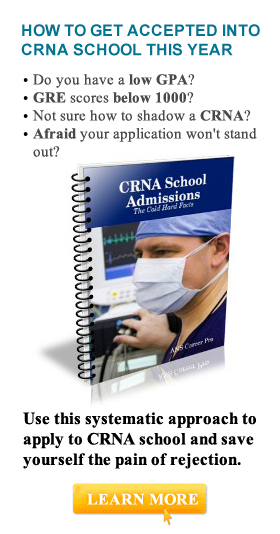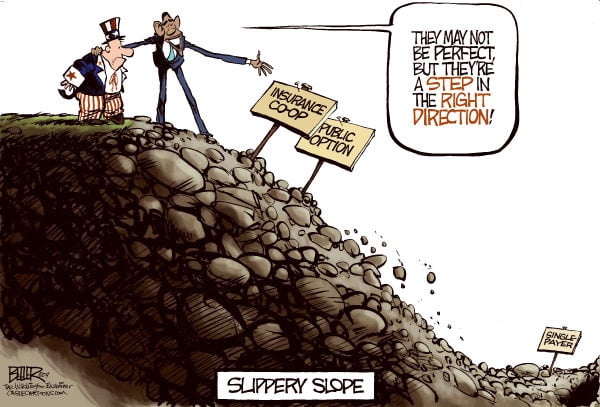To some extent, MD anesthesiologists have become a victim of their own excellence. Deaths during the administration of anesthesia occur at a paltry rate of 1/250,00 cases nowadays. This remarkable improvement can be attributed solely to technical improvements in the monitoring of patients during a procedure. Things like continuous pulse oximetry, end tidal CO2 monitoring, and fiberoptic-based intubation equipment have almost completely eliminated major morbidity from the profession. This is a good thing. But maybe not so good for anesthesiologists. They practice in a very algorithmic, checklist-based manner.
Thus, it was relatively easy to teach their methods to CRNAs during a period when the exponential rise in operative case loads made it necessary to incorporate "anesthesiology assistants" into a practice, thereby allowing one attending physician to cover multiple rooms. That recent studies have confirmed what everyone else in the OR already knew — that it didn't really matter who was behind the drape while a cholecystectomy was ongoing — is hardly a surprise.
The less variability in clinical excellence one sees from certain specialists, there seems to be a commensurate decrease in perceived prestige. In other words, one's individual reputation as a doctor can be paradoxically harmed when the overall complication rate of your chosen specialty is so low. You are seen as a mere "cog in the machine", a cog that could easily be interchangeable with another doctor or, in this case, a CRNA.
Anesthesiology represents the easiest target. But don't think that the other specialties are exempt from possible onslaught. The more specialized we become as doctors, and the less we emphasize and reward doctors who focus on a holistic approach to medicine (primary care, internists, general surgeons), the easier it becomes for the federal government to replace those pricey specialists with back door, non-MD options who happen to be much less expensive.
Imagine a "certified orthopedist" training program that one could enroll in directly out of college with a bachelors of science. You then spent the next three years doing nothing but learning musculoskeletal anatomy/pathology and practicing the basic orthopod operations in virtual reality and on actual patients. Perhaps actual orthopedic surgeons could be enticed to head up such a training program so that these ortho technician graduates learned their techniques from the best. Further imagine that research papers would be published demonstrating equivalent outcomes no matter who performed your knee replacement, MD or ortho technician.
It isn't difficult to see where all this is heading. The cost of healthcare must be controlled to prevent bankrupting our country. Medical school graduates overwhelmingly opt out of primary care and internal medicine. If you can't force or entice our brightest students to stop applying for derm and ortho and radiology residency slots, then maybe you can at least give them a little competition for that business from non-MD sources.
Dr. Jeffrey Parks
Dr. Jeffrey Parks is a board certified general surgeon working in Cleveland who writes regularly at Buckeye Surgeon.
Follow Dr. Jeffrey Parks: Website |
Read more:
http://medcitynews.com/author/jparks/#ixzz2***dL766




